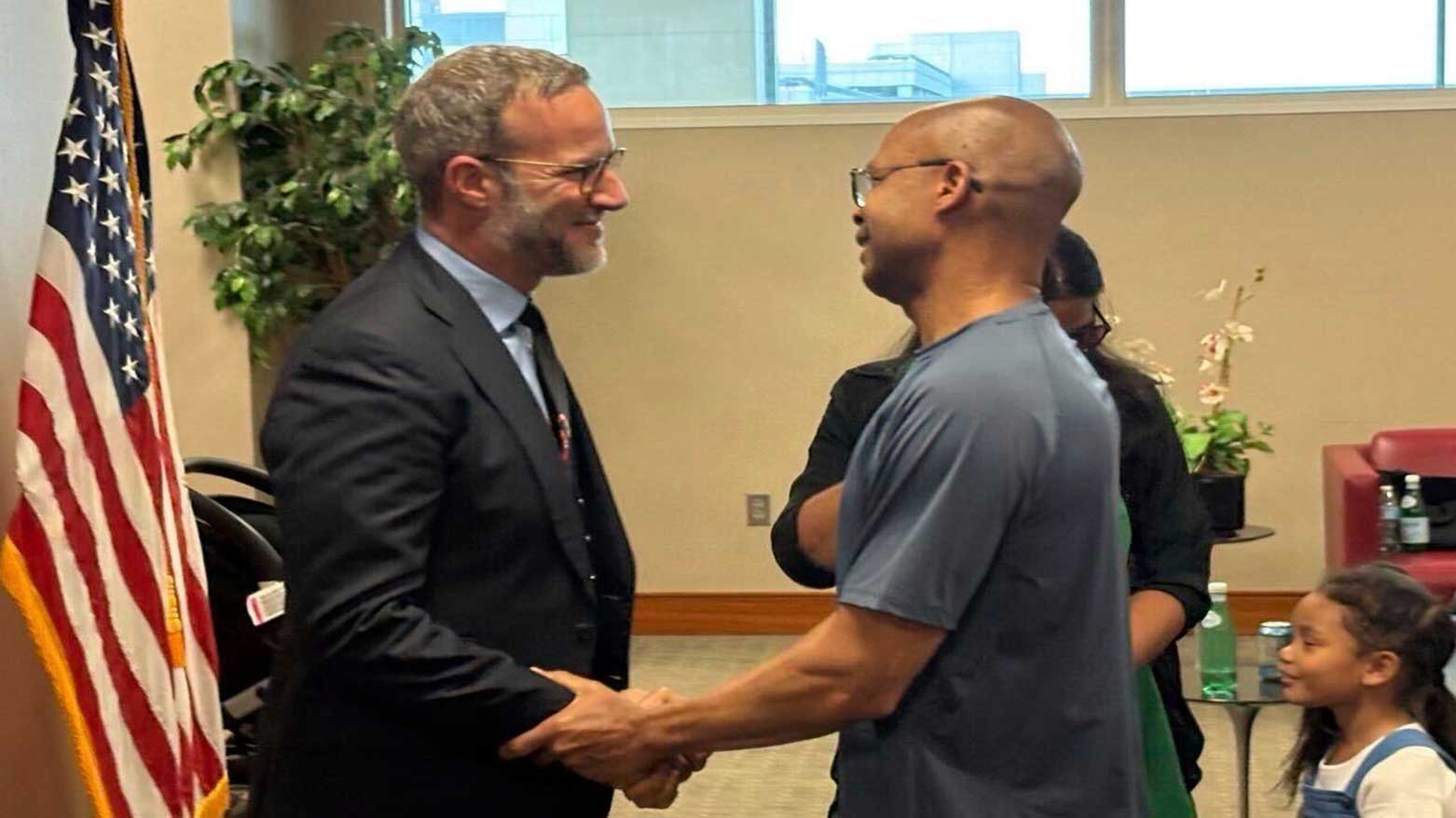Kuwait Frees 10 More Americans in Rare, Rapid Release of Detainees
“Kuwait understands that the United States has stood by them historically,” Boehler said. “They know this is important for the president, and they’ve been extremely responsive.”

ERBIL (Kurdistan24) — In a rare and swift diplomatic gesture, Kuwait has released 10 additional American detainees, bringing the total number freed in the past two months to 23, U.S. officials told The Associated Press (AP) on Wednesday.
The series of pardons, viewed as a goodwill move by a key U.S. ally in the Gulf, comes amid a renewed effort by the Trump administration to prioritize the resolution of hostage and detainee cases early in its term. The detainees—comprising military contractors and veterans—had been held for years on drug-related and other charges in Kuwait, which enforces strict narcotics laws.
One of the Americans freed was Tony Holden, a longtime defense contractor and HVAC technician arrested in November 2022 while working in support of U.S. military operations at Camp Arifjan. Advocates say Holden was the victim of a fabricated case driven by corrupt police officers seeking bonuses. He reportedly endured threats against his wife and daughter and was coerced into signing a confession written in Arabic—a language he could not read.
“Tony is an innocent man who was held unjustly for 902 days,” said Stacia George, Chief Engagement Officer at Global Reach, a nonprofit that campaigned for Holden’s release. “This gives him the ability to come home to his family and restart his life.”
The releases were not part of any negotiated prisoner swap, and the U.S. government did not offer anything in exchange, according to Adam Boehler, the Trump administration’s envoy for hostage affairs. Boehler visited Kuwait weeks before the first group of 10 detainees was released in March.
“We flew out, we sat down with the Kuwaitis, and they said, ‘Listen, no one’s ever asked before at this level,’” Boehler told The Associated Press. He emphasized that the Kuwaiti government acted independently, recognizing the longstanding alliance with the U.S. and the administration’s stated priority of bringing Americans home.
“Kuwait understands that the United States has stood by them historically,” Boehler said. “They know this is important for the president, and they’ve been extremely responsive.”
Kuwait is considered a major non-NATO ally and hosts approximately 13,500 American troops at Camp Arifjan and Ali al-Salem Air Base. Despite its close military ties with Washington, the Gulf state has drawn criticism for detaining American contractors, often for years, on drug-related offenses. Some detainees and their families have accused Kuwaiti authorities of abuse and of using fabricated evidence—claims the Kuwaiti government has not publicly addressed. A request for comment from the Kuwaiti Embassy in Washington went unanswered.
Jonathan Franks, a private consultant who worked on behalf of nine of the 10 detainees released this week, said that all the cases involved confessions taken without translation and none had identifiable victims.
“These Americans, mostly veterans, lost years with their families,” Franks said. “The Trump administration looked for reasons to bring Americans home, even when their cases didn’t meet the strict criteria of wrongful detention.”
U.S. Secretary of State Marco Rubio welcomed the development, saying, “We celebrate [Tony Holden’s] release and return to the United States.”
The wave of releases by Kuwait stands out as one of the fastest series of American detainee pardons by a foreign government in recent history, offering a rare diplomatic success and reinforcing the U.S.-Kuwait alliance during a period of regional uncertainty.
